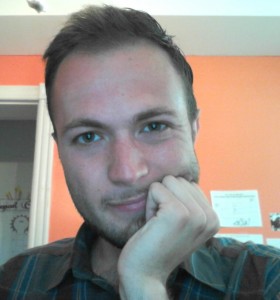 Witnessing the birth of something new can be confusing. I felt that way as a kid in the Northwest watching the 1999 WTO protests in Seattle, not knowing what to makes of the images on TV and I felt the same way watching the beginnings of the Occupy movement. I didn’t take it seriously. A bunch of kids who’d suddenly discovered that things weren’t as they should be. I wasn’t the only one who’d been marching in the streets for years who doubted it would become anything. But it did. And it’s transformed not only the political but in many ways the Jewish conversation in America.
Witnessing the birth of something new can be confusing. I felt that way as a kid in the Northwest watching the 1999 WTO protests in Seattle, not knowing what to makes of the images on TV and I felt the same way watching the beginnings of the Occupy movement. I didn’t take it seriously. A bunch of kids who’d suddenly discovered that things weren’t as they should be. I wasn’t the only one who’d been marching in the streets for years who doubted it would become anything. But it did. And it’s transformed not only the political but in many ways the Jewish conversation in America.
Between those two moments, between childhood with the Battle in Seattle and today, Occupy, I went through a Jewishly apathetic childhood through 5 years of observance, a year in Israel to, again, disillusionment with a Judaism that seemed to like using phrases like “tikkun olam” more than it liked actually confronting any system, a Judaism I couldn’t talk about my politics on Israel with, or for that matter my politics on much of anything. If I was going to be a Jew and some sort of radical activisty person, those two identities would have to remain separate. But as Moses learned, its not easy to keep the sea in two and walk through on dry land. At some point it’s going to collapse. And if it doesn’t, it still takes one hell of a toll. At Occupy, I saw for the first time in my life, Jews saying they weren’t going to take it anymore. They weren’t going to be forced to choose between half identities or else live fragmented lives, always in some sort of closet. Here I saw Jews ready to insist to a traditionally secular left and to a complacent Jewish world that they had the right to live as whole people in both worlds.
On Kol Nidre at Occupy I felt that same way I’d felt before. That something new is happening here. That I like it. That I don’t know what to make of it. I could talk about the contents of the Summit itself. I could tell you about the workshops I attended; about how cool it was to share a drink with Amy Dean. I could tell about text studies and lunches. Or I could talk about what I think was accomplished, for many of the attendees, and for me.
It invited us to the table. It let us come together and start to build, not just a movement for greater political impact but a new Jewish home.
In the last workshop I had the opportunity to take part in, facilitated by Rabbi Margie Klein, I sat with other young adults and discussed where we saw a need to organize within the Jewish community itself. We talked about diversity of race, class and sexuality in our synagogues and our communities and how we can further agitate for further inclusion in those spaces. And we talked about pushing for the creation of a more open culture of dialogue, where ideological pluralism, particularly on the subject of Israel/Palestine is treated more as the Talmud treated pluralism, as productive discourse rather than as the McCarthys of history have treated it, as dangerous betrayal.
This Summit was a space to start those conversations, to talk about the struggles we’d fought in the Jewish community and how, maybe by fighting those together, we could create a more vigorous movement for broader change. Organizationally I’ve been part of that movement for the last year, as a member of Avodah: The Jewish Service Corps and, as a member of next year’s JOIN Fellowship I hope to continue whatever role I may have in it. But more than that, the lesson I take from the JOIN Summit is that if we want to really push the balance of power, if we want to organize and agitate and dedicate ourselves to a more just world, we have to stand on our own feet and stop apologizing for our values.
I’m not sure what to make of this “Jewish social justice” thing that I’m supposed to be a part of it, whether it’s just the continuation, transformation, judaization of some longer political tradition or whether it really is something new, being born and waiting for a name. And maybe I’m still hesitant. Maybe I still don’t know what to make of it. But I look forward to finding out.
Jeremy Wood is a current member of Avodah: The Jewish Service Corps in Washington, DC and an excited incoming finalist with next year’s JOIN Organizing Fellowship. A native of and longtime activist in Vancouver, British Columbia, Jeremy is trying to figure out how to make change in the strange worlds of America and American Judaism.



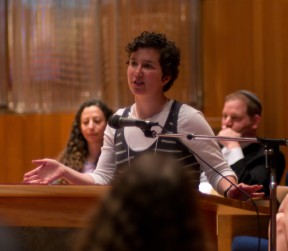 In between Passover and the holiday of Shavuot which celebrates the Jewish people’s acceptance of the ten commandments, many Jews observe a seven-week period of counting called the Omer. The idea of counting each day represents spiritual preparation and anticipation for the giving of the Torah. Each day is connected to two mystical traits that we can cultivate, explore and connect to our daily lives and actions. Two that I find particularly fascinating are authority (in Hebrew, malchut) and endurance (in Hebrew- netzach). I have been thinking a great deal about how these traits connect to the folks I work with everyday.
In between Passover and the holiday of Shavuot which celebrates the Jewish people’s acceptance of the ten commandments, many Jews observe a seven-week period of counting called the Omer. The idea of counting each day represents spiritual preparation and anticipation for the giving of the Torah. Each day is connected to two mystical traits that we can cultivate, explore and connect to our daily lives and actions. Two that I find particularly fascinating are authority (in Hebrew, malchut) and endurance (in Hebrew- netzach). I have been thinking a great deal about how these traits connect to the folks I work with everyday.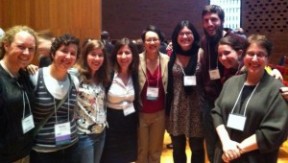
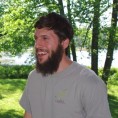 Micah Weiss is the assistant director at Etgar 36, leading experiential education trips for Jewish teenagers that teach about history, politics, and activism, but will be moving back to New York in one month to attend Yeshivat Hadar. Last year, Micah was an AVODAH Corps member in Brooklyn where he worked as an anti-gun violence community organizer and inter-group facilitator at the Crown Heights Community Mediation Center. Micah graduated from Wesleyan University in 2010 with a degree in Religion and African American Studies.
Micah Weiss is the assistant director at Etgar 36, leading experiential education trips for Jewish teenagers that teach about history, politics, and activism, but will be moving back to New York in one month to attend Yeshivat Hadar. Last year, Micah was an AVODAH Corps member in Brooklyn where he worked as an anti-gun violence community organizer and inter-group facilitator at the Crown Heights Community Mediation Center. Micah graduated from Wesleyan University in 2010 with a degree in Religion and African American Studies.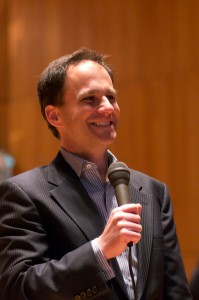 This post originally appeared on
This post originally appeared on 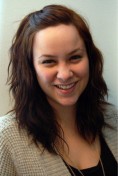 Kate Bigam is the URJ’s Social Media and Community Manager. Prior to this, she served as a Congregational Representative for the URJ’s East District and at the Religious Action Center as Press Secretary and as a 2007-2008 Eisendrath Legislative Assistant. She is a native of Cuyahoga Falls, Ohio, and currently resides in Portsmouth, N.H.
Kate Bigam is the URJ’s Social Media and Community Manager. Prior to this, she served as a Congregational Representative for the URJ’s East District and at the Religious Action Center as Press Secretary and as a 2007-2008 Eisendrath Legislative Assistant. She is a native of Cuyahoga Falls, Ohio, and currently resides in Portsmouth, N.H.


